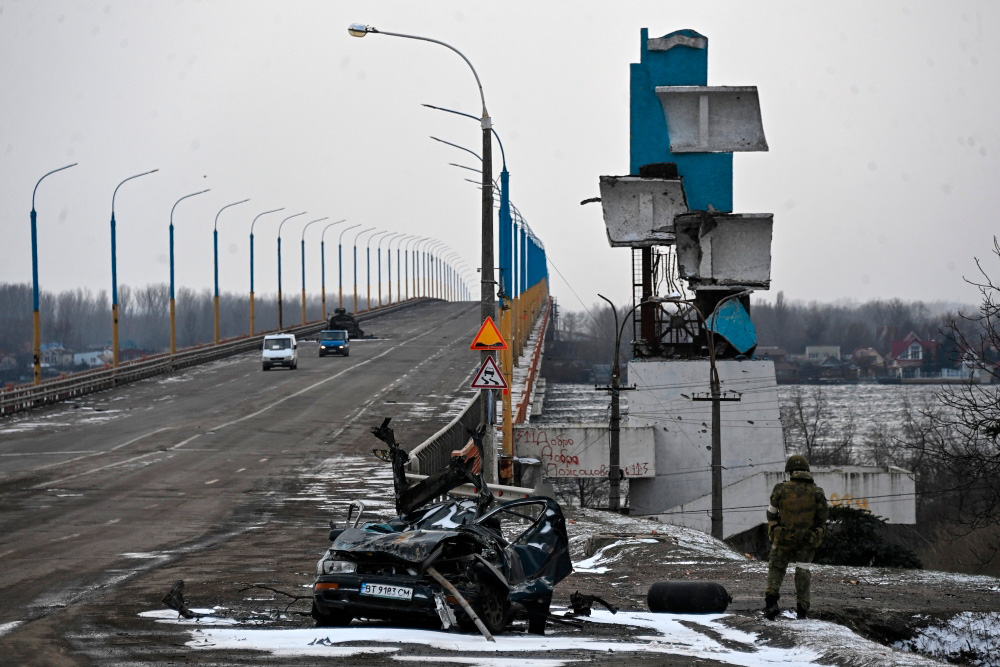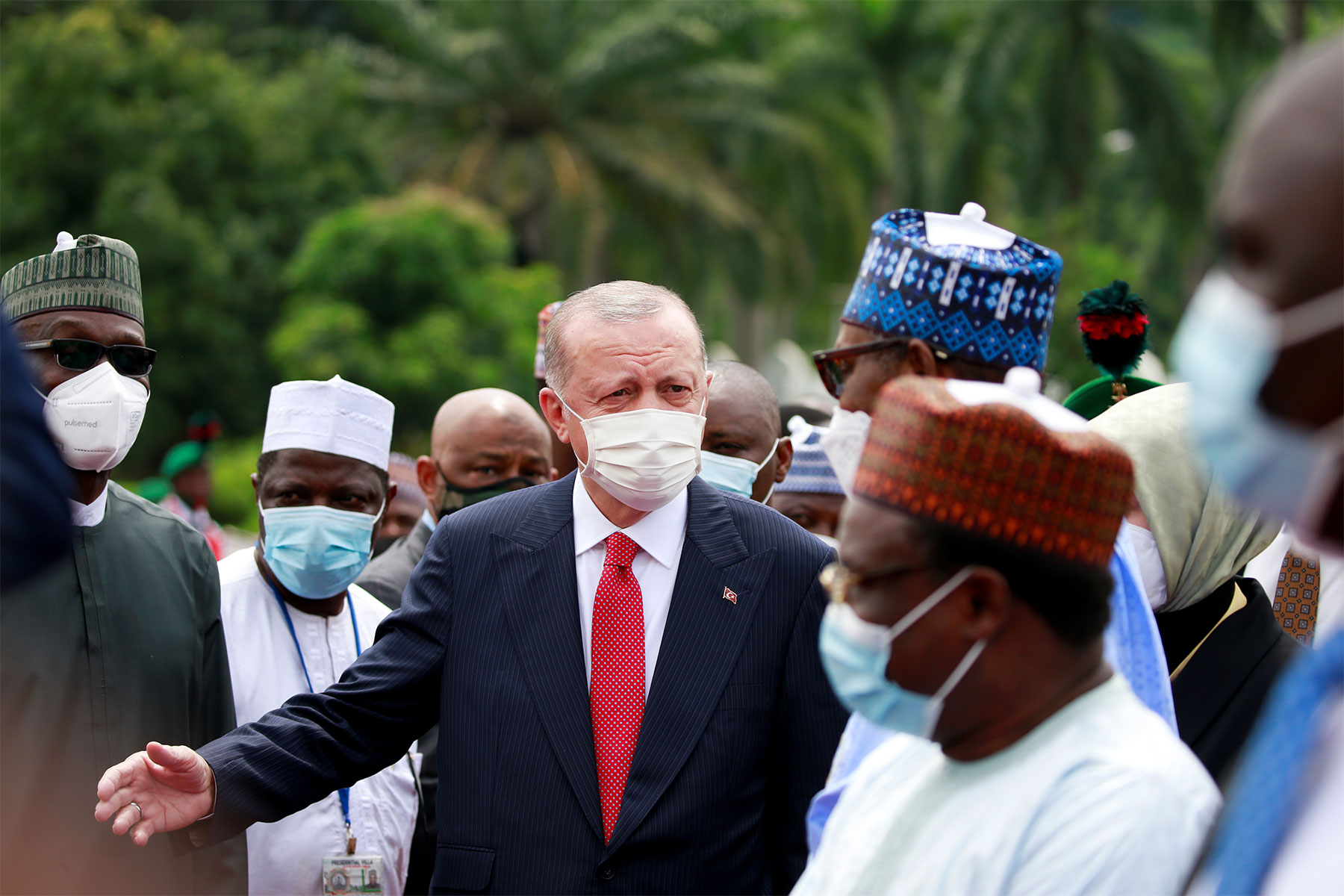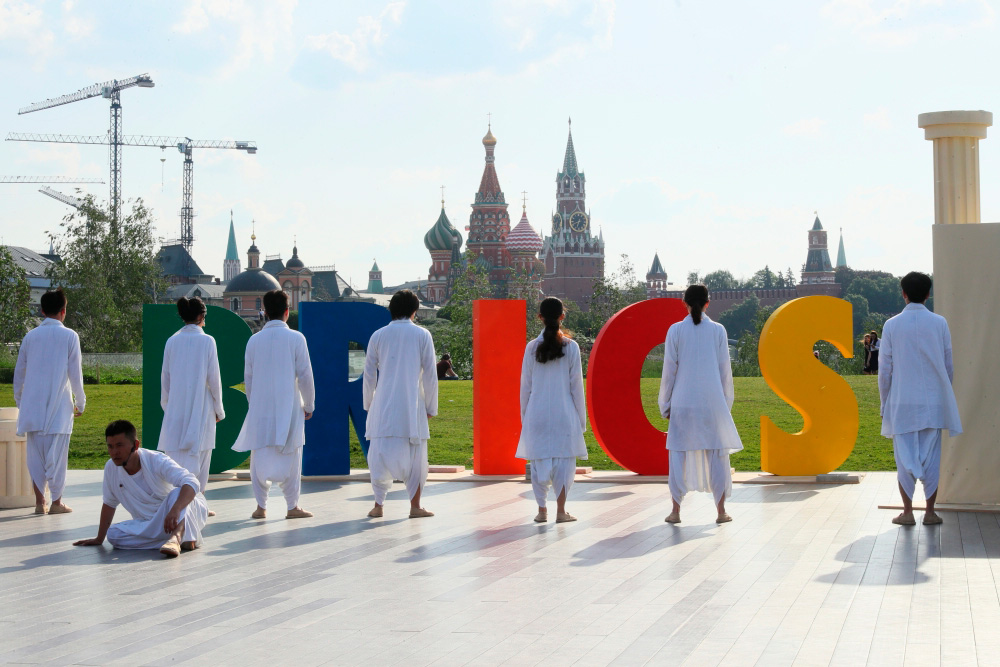For most of Russia’s neighbours, the conflict between Moscow and Kiev opens up great opportunities. Time will tell how exactly they will use them. However, all of them should keep in mind the scenario of an escalation to the level of a military clash between Russia and NATO. Such a collision could nullify many of the benefits discussed above.
Turkey appears to be one of the key beneficiaries of the conflict. Ankara skilfully manoeuvres, benefiting from everyone. Turkish diplomacy opposes the Russian military operation, condemns Russian actions and shows solidarity with NATO allies. At the same time, Ankara maintains constructive relations with Moscow. Recep Tayyip Erdogan has refused to implement sanctions against Russia. Turkish companies are preparing to occupy a whole range of niches vacated after the withdrawal of Western firms from the Russian market. Companies are being created that are focused directly on interaction with the northern neighbour. Turkey is becoming a unique traffic hub. Its role as an economic mediator in relations between Russia and the West is growing immensely. At the same time, Ankara is trying to play a mediating role in resolving the conflict. So far, these efforts have not been successful. But not a single Western player, despite some being formally neutral (Switzerland, Finland, Sweden), today can take on such a job. It is unlikely that the post-Soviet countries will cope with it either.
Azerbaijan is another winning player. Baku maintains partnership relations with Moscow, but it does not have excessive obligations. The current crisis has sharply increased demand for Azerbaijani oil. The country will receive significant income. At the same time, Azerbaijan remains a partner of the US, UK, EU and other Western players.
Armenia also receives its bonuses from the conflict. Tens of thousands of Russians are moving to Yerevan. We are talking, among other things, about active and passionate businessmen working in the IT sector. The country receives an influx of human capital, and with it a possible economic effect. At the same time, Armenia remains a vulnerable country.
Part of the migration flow from Russia has also rushed to Georgia. Tbilisi has distanced itself from the sanctions war, not wanting to suffer losses in the Russian market. The country remains oriented towards the West, but clearly does not want to aggravate relations with Moscow. Georgia’s key interest is to prevent the reopening of territorial conflicts amis the developments in Ukraine. The balance of losses and gains for Georgia is not yet obvious.
Kazakhstan also plays the role of a hub for Russian business. Here, too, a significant influx of human capital from Russia is possible. Kazakhstan is a big market. Kazakhstan has a long border with the Russian Federation, which creates opportunities for the re-export of goods to Russia. The country’s authorities have said they would not circumvent Western sanctions. But they may well fill the niches abandoned by Western companies due to corporate boycotts. Like Azerbaijan, Kazakhstan is benefiting from rising energy prices.
Turkmenistan is likely to benefit tangibly from rising gas prices. Kyrgyzstan and Tajikistan, on the contrary, may lose due to the reduction in the inflow of remittances from Russia due to the contraction of the market. Uzbekistan is more stable in this regard due to the larger scale of the economy.
The Republic of Belarus will experience the impact of Western sanctions. In part, they will be offset by deepening trade ties with Russia. But due to the contraction of the Russian market, the effect of such a partnership may be lower than expected.
The Republic of Moldova is a “loser” in this crisis. The country has received a large number of refugees from Ukraine. Brussels will provide financial assistance to Moldova to work with refugees. But the social burden on the economy can still be significant.
Tehran has a unique window of opportunity. The risk of a shortage of oil in the world market may force the US to make some indulgences in the sanctions regime.
As for North Korea, it benefits at least from the fact that the losses are borne by its key opponents — the United States, Japan, South Korea, etc. Their losses are not fatal, and they are not automatically converted into dividends for Pyongyang. But the West appears now as a much more dangerous adversary, which has turned into the main “world villain” for it, covering the DPRK with its giant shadow.
The military conflict between Russia and Ukraine has led to an unprecedented shake-up of the world order that has prevailed over the last 30 years. It has generated colossal losses and risks for both countries. There is a high probability that hostilities will drag on. Apparently, the parties are preparing for a decisive new battle. Its outcome is not predetermined and it is too early to sum up results. However, we can already talk about some consequences for foreign countries. We have already provided such estimates for major players — the US, the EU, India, China, and Japan. And now let’s outline the possible trajectories for some states of Eurasia, located in close proximity to the borders of Russia.
Turkey appears to be one of the key beneficiaries of the conflict. Ankara skilfully manoeuvres, benefiting from everyone. Turkish diplomacy opposes the Russian military operation, condemns Russian actions and shows solidarity with NATO allies. In relations with the United States and other allies, the country’s position has strengthened. Before the start of the operation, an uncomfortable light had been cast on Turkey by a number of difficult moments. There were Russian arms purchases, and related US sanctions, and tensions with the EU over exploration in the Eastern Mediterranean, and a wary attitude towards Turkey’s role in Syria and Libya, and human rights claims. Against the backdrop of the events in Ukraine, all these concerns faded. Apparently, Ankara is actively supplying Ukraine with weapons, including Bayraktar UAVs. Their role can hardly be called as prominent as in the Karabakh conflict, but for the Turkish military-industrial complex, the conflict expands the market and opportunities to show equipment in action.
At the same time, Ankara maintains constructive relations with Moscow. Recep Tayyip Erdogan has refused to implement sanctions against Russia. Turkish companies are preparing to occupy a whole range of niches vacated after the withdrawal of Western firms from the Russian market. Companies are being created that are focused directly on interaction with the northern neighbour. Turkey is becoming a unique traffic hub. Its role as an economic mediator in relations between Russia and the West is growing immensely. The role of an intermediary promises huge profits. Of course, some of the transactions will be shady in nature and will cause discontent among allies. However, this is unlikely to reduce the appetites of the business. At the same time, Turkey has demonstrated flexibility in financial relations with Moscow. The key conditions for successful trading in the new conditions have been created. Turkey accepts Mir cards (Russia’s version of Visa or MasterCard). Most likely, bilateral financial transactions and trade will not be a problem.
At the same time, Ankara is trying to play a mediating role in resolving the conflict. So far, these efforts have not been successful. But not a single Western player, despite some being formally neutral (Switzerland, Finland, Sweden), today can take on such a job. It is unlikely that the post-Soviet countries will cope with it either. Turkey, on the other hand, has sufficient political weight, it is part of the Western security community, and at the same time plays an independent role. The Ukrainian crisis has strengthened the status of Ankara.
Azerbaijan is another winning player. Baku maintains partnership relations with Moscow, but it does not have excessive obligations. The current crisis has sharply increased demand for Azerbaijani oil. The country will receive significant income. At the same time, Azerbaijan remains a partner of the US, UK, EU and other Western players. The Ukrainian crisis could also divert Russia’s attention away from the Karabakh issue. Azerbaijan is unlikely to abuse such a switch, but both Baku and Ankara are closely monitoring the situation.
Armenia also receives its bonuses from the conflict. Tens of thousands of Russians are moving to Yerevan. We are talking, among other things, about active and passionate businessmen working in the IT sector. Armenia has become a convenient hub for them, offering a comfortable cultural environment, the possibility of a long visa-free stay, relatively convenient procedures for obtaining a residence permit, and the availability of financial services. Yerevan has become the optimal solution for small and medium-sized entrepreneurs working to export their intellectual services. The country receives an influx of human capital, and with it a possible economic effect. At the same time, Armenia remains a vulnerable country. Excessive international turbulence and fluctuating commodity prices are not in its interests.
Part of the migration flow from Russia has also rushed to Georgia. Tbilisi has distanced itself from the sanctions war, not wanting to suffer losses in the Russian market. The country remains oriented towards the West, but clearly does not want to aggravate relations with Moscow. Georgia’s key interest is to prevent the reopening of territorial conflicts amis the developments in Ukraine. The balance of losses and gains for Georgia is not yet obvious.
Kazakhstan also plays the role of a hub for Russian business. Here, too, a significant influx of human capital from Russia is possible. Kazakhstan is a big market. A lot has also been done here to develop the financial infrastructure, including the establishment of the Astana International Financial Centre. Kazakhstan has a long border with the Russian Federation, which creates opportunities for the re-export of goods to Russia. The country’s authorities have said they would not circumvent Western sanctions. But they may well fill the niches abandoned by Western companies due to corporate boycotts. Ample opportunities remain for the supply of their products to Russia through Kazakhstan without the sanctions regimes being violated. Their skilful implementation will benefit the country. Like Azerbaijan, Kazakhstan is benefiting from rising energy prices.
Armenia, Georgia and Kazakhstan can be considered the main beneficiaries from migration from Russia. At the same time, the question of the stability of such a flow remains open. The Russian government has sent two important signals. The first is that the country does not plan to turn into a repressive state with a mobilisation and a command economy, in which there will be no place for the market. The second is in creating conditions for market liberalisation. After the shock of the early days of the conflict, such signals could encourage a reverse flow of human capital back into Russia. Access to financial services for international transactions remains a challenge. However, over time this problem will be solved. Having built “alternate airfields” in neighbouring countries, business may well return to Russia.
Turkmenistan is likely to benefit tangibly from rising gas prices. Kyrgyzstan and Tajikistan, on the contrary, may lose due to the reduction in the inflow of remittances from Russia due to the contraction of the market. Uzbekistan is more stable in this regard due to the larger scale of the economy.
The Republic of Belarus will experience the impact of Western sanctions. In part, they will be offset by deepening trade ties with Russia. But due to the contraction of the Russian market, the effect of such a partnership may be lower than expected. In addition, the structure of relations between the Republic of Belarus and the EU differ from similar relations with Russia.
The Republic of Moldova is a “loser” in this crisis. The country has received a large number of refugees from Ukraine. Brussels will provide financial assistance to Moldova to work with refugees. But the social burden on the economy can still be significant. In addition, Moldova is facing a significant increase in fuel prices, which will also inevitably affect economic growth.
Finally, two other neighbouring countries, Iran and North Korea, should be mentioned. Tehran has a unique window of opportunity. The risk of a shortage of oil in the world market may force the US to make some indulgences in the sanctions regime. Iran may take an initially tough stance and then reduce its demands to reach a compromise acceptable to Washington. The big question is how long the US will ease its pressure on Iran, if at all. However, the very fact of such a possibility is indisputable. As for North Korea, it benefits at least from the fact that the losses are borne by its key opponents — the United States, Japan, South Korea, etc. Their losses are not fatal, and they are not automatically converted into dividends for Pyongyang. But the West appears now as a much more dangerous adversary, which has turned into the main “world villain” for it, covering the DPRK with its giant shadow. It is possible that in relations with Russia, North Korea will try to achieve tactical advantages. For example, Western pressure may encourage Moscow to turn a blind eye to oil supplies to its neighbour, to the employment of Korean workers, to the influx of foreign exchange earnings, to access to manufactured goods, and so on. Russia is unlikely to get fully involved in such cooperation. Still, it is a co-author of restrictive measures by the UN Security Council in response to Pyongyang’s nuclear missile programme. But certain tolerances in Russian politics are quite possible. They are also possible in Chinese politics.
For most of Russia’s neighbours, the conflict between Moscow and Kiev opens up great opportunities. Time will tell how exactly they will use them. However, all of them should keep in mind the scenario of an escalation to the level of a military clash between Russia and NATO. Such a collision could nullify many of the benefits discussed above.
First published in the Valdai Discussion Club.







